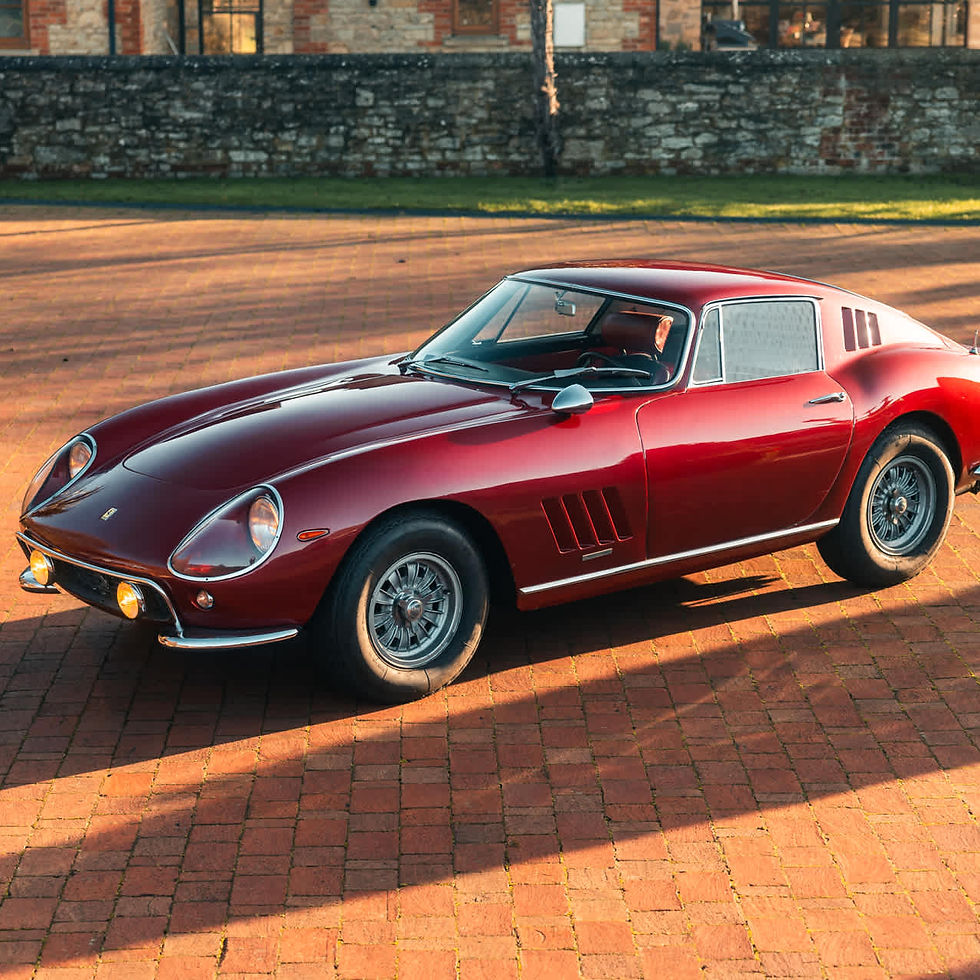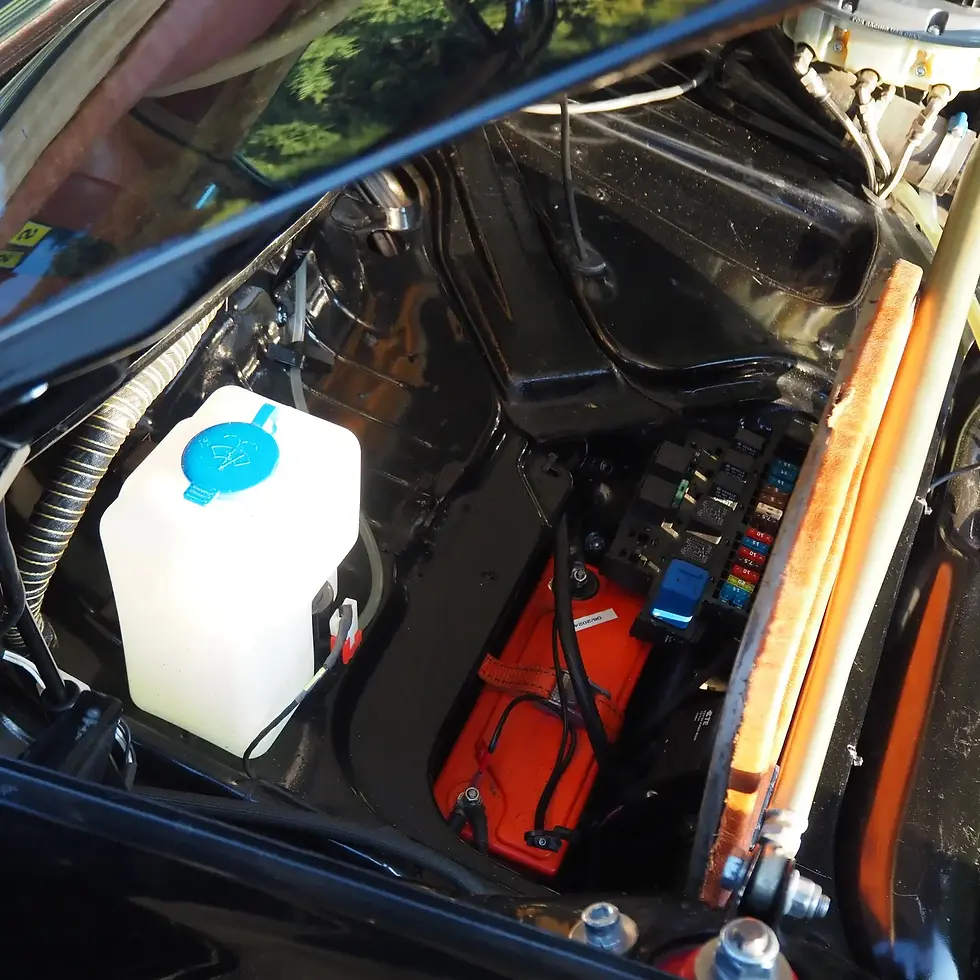European Specification
2.8-liter inline six -- 170 HP
Rare 4-speed manual transmission
In its original color combo, Blue with Bamboo Leather
Complete rotisserie restoration by Coachworks/Rudi & Company
Hardtop, spare wheel/tire, toolkit, manuals, and extensive documentation
Mercedes-Benz introduced the 230SL, a brand-new roadster that would eventually replace the 190SL and 300SL, in the spring of 1963. The 230SL "Pagoda" was an exquisite two-seat convertible with sharp lines and upright headlights that was developed by Paul Bracq and adhered to Mercedes' new design philosophy. The 230SL was given a large three-pointed star in its grill as a nod to the 300SL, which was already recognizable. The hood, door skins, trunk lid, and tonneau cover were all made of aluminum to reduce weight. Due to the optional removable hardtop's slightly concave roof, which resembled a pagoda, the moniker "Pagoda" was immediately embraced. These SLs are now regarded as masterpieces of design, despite being divisive at the time of their introduction.
When Mercedes unveiled the 280SL, the third and last generation of the "Pagoda," in 1967, it became clear that some automobiles don't change; they only get better. After evaluating a 280SL in 1968, Road & Track stated, "The Mercedes-Benz 280SL, the latest iteration of a line that started as the 230SL in 1963, is the same as ever, just better." According to its manufacturer, the 280SL is "a Grand Tourer in the traditional sense" and "a unique combination of sports car performance and saloon car comfort (a Mercedes-Benz saloon of course)." The highly regarded American motoring magazine praised it as "alone in the field" for those who value engineering, finesse, and high-quality construction.
The 280 featured the same modified W111 chassis (W113) with a rear swing axle and independent front suspension and four-wheel disc brakes. Power came from a 2.8-liter version of Mercedes' robust inline-six and used Bosch fuel injection, a combination producing 160 horsepower in US-market variants, and 170 horsepower in European models such as this vehicle. The majority of US models were equipped with 4-speed automatics with only a rare few being made with a 4-speed manual as opposed to the European models which saw a larger quantity of manual transmissions.
This specific 280SL is undoubtedly a cut above the rest. First purchased by a Canadian air force pilot, this vehicle was acquired during his station in Germany. Upon returning back to Canada he imported the vehicle with him where he continued his ownership for well over a decade until selling it to its second owner who after a few years sold the car to the most recent owner. The most recent owner owned this 280SL for almost 30 years, receiving it in 1994. He was a retired pilot, who stored the vehicle in his hangar and would only bring the vehicle out on days when there was no chance of rain.
2016 marked the beginning of a two-year-long 100% rotisserie restoration performed by Coachworks and Rudi & Co. and meticulously overseen by the owner. During the restoration, he would visit on a biweekly basis and although he did not perform the restoration himself, he played a huge role in its success. He personally flew over difficult to source original parts for the project regularly. Here at Canepa, we are no strangers to restorations of the highest level and can speak from experience that this 280SL fits the bill. All aspects of the vehicle were brought back to exactly the way they left the factory 55 years ago. During the exhaustive restoration, the owner displayed acute attention to detail to a level that is rarely seen, pushing Coachworks and Rudi & Co. to perform a restoration beyond their already high-level award-winning usual.
Every nut and bolt was inspected and no aspect of the vehicle was overlooked. All mechanical components were inspected, reconditioned, restored, or replaced as needed. A complete engine overhaul was performed utilizing all new internal engine components. Once completely stripped down, the vehicle was restored to perfection utilizing laser precision.
When painting the car, the same degree of accuracy was exemplified making sure everything was period correct. All body gaps once painted were uniformly set at 4mm. Anything that would or wouldn’t have been seen on the original car was taken care of. As a testament to the attention to detail, the hood features streaks and paint that runs toward the lower half. In their earlier years, Mercedes would dry their hoods by hanging them so the owner had the same done during the painting process to mirror the original paint job. All new factory glass and a mixture of replated and N.O.S. parts were used for the chrome. The original Bamboo Leather interior upholstery and carpets were completely restored and go perfectly with the recently completed paint creating this stunning color combo.
Upon arrival at Canepa, every collector car for sale is put through an extensive and diligent process called the “Canepa Difference.” This includes a major and comprehensive mechanical inspection where all systems are checked, serviced, and restored as needed. They also receive an award-winning concours-level detailing, including a thorough cleaning of each and every surface. This 280SL passed our inspection flawlessly, as expected with how well restored and taken care of the vehicle was. Bruce has only seen three 280SL’s restored to this level, with one being a 280SL Canepa restored nearly 20 years ago.
Do not miss this extremely rare chance to own what might well be the finest example of a European spec 1968 Mercedes Benz 280SL in its marvelous original color combo and the highly sought 4-speed manual transmission.























































































